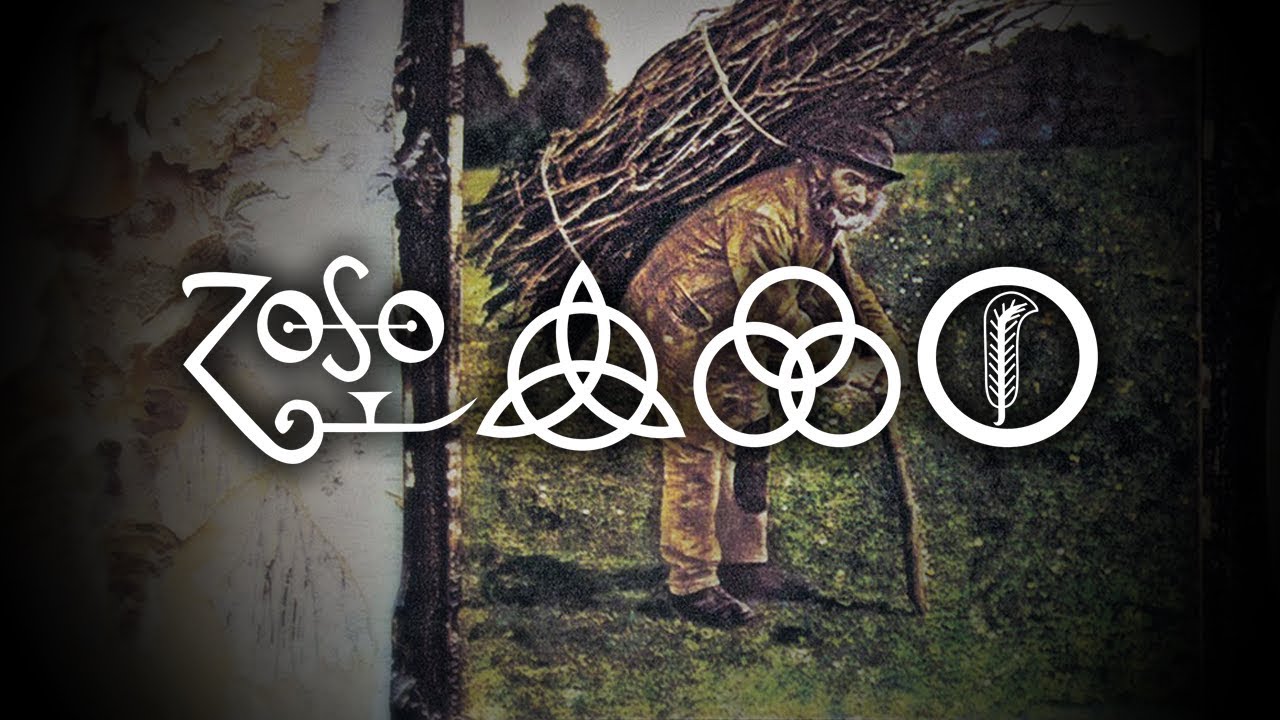Sometimes the fourth time is the charm – especially when it comes to establishing an indelible mark in pop history by branding one’s perpetual presence in the collective imagination like hot iron on cattle. It’s true Led Zeppelin were never really ignored or unsuccessful, but it would take them a four-album run to gain (relatively) consensual critical recognition as more than an ephemeral hype relying on lazy blues rip-offs. Although, when you think about it, accusations of inauthenticity are rather hypocritical in a business where everybody steals. Some just happen to hide it better than others.
Released in November of The Year That Music Changed Everything, Led Zeppelin IV closes the band’s foundational tetralogy, which is characterised not only by albums lacking a proper title but also by the drawing of an arc that vividly illustrates the bewildering passage between the utopian 60s to the disillusioned 70s.
The mission of Led Zeppelin in the grand scheme of things often feels like it was precisely the construction of this self-referential bridge, made by establishing and propagandising the unleashing of roots rock that took place right after the moribund hippie dream got its mercy shot. Plagiarism? Sure. They’d been doing it since album number one. But then again, so had most white pop music, repeatedly sanitising what had usually been deemed too risqué (or simply too dangerous due to the responses it aroused) for safe audience consumption in a moral panic-ridden society, and therefore blocked from proper crossover.
The last album of an era, Led Zeppelin IV completes a stylistic and atmospheric cycle for the band, who had been doing all the channeling and cultural appropriation the genre required for a while now. As egoism and megalomania took their toll on counterculture, roots rock would too become naive at best.
“Stairway To Heaven” can be seen as a metaphor for this autophagic process, a phenomenon which also helps to explain the song’s enduring success as the quintessential representative of the album, but also of Led Zeppelin—Jimmy Page himself would say the song “crystallised the essence of the band.” Beyond the customary claims of lyrical satanism (paranoia was running high by this time and Page’s public obsession with Aleister Crowley certainly didn’t help) and a trademark plagiarism claim from Californian psych-rockers Spirit, “Stairway To Heaven” stands as a classic epic that nevertheless hides an amusing fallacy: while at first it proposes to tell us a story, its lyrics eventually disclose nothing but loose metaphors for greed and consumerism disguised in fantastic imagery. The very trick it thus achieves resides in having us believe it’s leading us somewhere, when it’s actually making us turn in circles without ever resolving itself. Talk about the song remaining the same.
This is exactly what Led Zeppelin achieved with their first four albums, and arguably their entire career: there is no hidden meaning or specific vectorial direction, but instead an illusion of forward movement built on past referents and subtle renovations. But this isn’t necessarily a bad thing; too much of an emphasis has been put on the ability pop should (supposedly) have to introduce something radically new, often without caring for the quality and/or substance of said novel element. And, while appropriation indeed played a major structural role in Led Zeppelin’s music, there was never any pondered attempt to hide it—it’s there, in plain sight for anyone who cares to identify it.
As Led Zeppelin IV brings everything full circle by institutionalising the band’s sound to the point of rendering them virtually untouchable in their golden gods status, the album’s paradox lies exactly in not fulfilling its original intention of looking within—after all, the absence of numbers, names, or any kind of writing on the cover along with the illustration of a Rider Waite-inspired Hermit was an apparent refusal to seek answers or validation in the outside world.
Yet it’s the old man on front cover that discloses the album’s legacy, drawing a parallel with the 10 of Wands from the same Tarot deck: while the card signals the completion of a cycle, it also serves as a reminder that wanting (and getting) it all can become too overwhelming, and carrying a heavy weight often comes with the danger of breaking under it. But it’s precisely the possibility of a self-induced destruction that makes the whole game exciting; and Led Zeppelin IV goes all-in by inhabiting this fascinating imminence.

